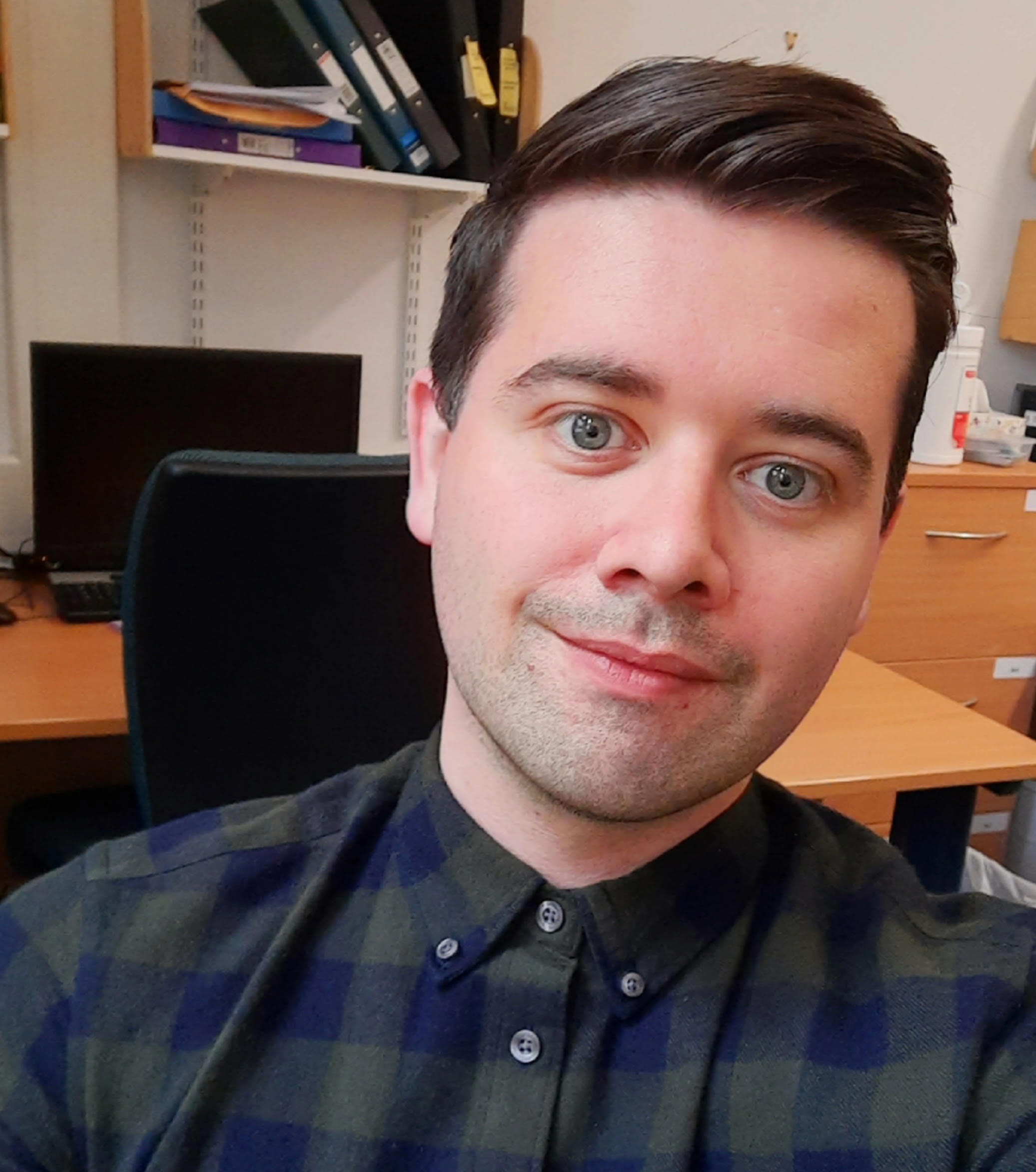-
Mon21Sep2020Sun08Nov2020online
Corpus MOOC
Corpus linguistics and new technologies: data, language and society is free online course in corpus linguistics organised by Lancaster University. It offers a practical introduction to the methodology of corpus linguistics for researchers interested in the analysis of language.
Course educator: Prof. Vaclav Brezina
Register for free https://www.edx.org/learn/social-sciences/lancaster-university-corpus-linguistics-and-new-technologies-data-language-society
-
Mon21Jun2021Fri25Jun2021Lancaster University (2021 Online format)
Lancaster Summer Schools in Corpus Linguistics – this year in an online format!
More information can be found here: Lancaster Summer Schools in Corpus Linguistics 2021
-
Wed23Jun2021Lancaster University (Online)
Organised by the ESRC Centre For Corpus Approaches to Social Science (CASS), Lancaster University, UK. The symposium will take place online via MS Teams. This symposium is free to attend.
More information can be found here: Lancaster Symposium on Innovations in Corpus Linguistics 2021
-
Fri19Nov202112:00 pmonline
This free event will introduce the Written British National Corpus 2014 and offer a series of mini lectures from leading experts in Corpus linguistics.
The British National Corpus 2014 (BNC2014) is a major project led by Lancaster University. We created a 100-million-word corpus (a large collection of ‘real life’ language) of present-day British English. This corpus can be used by researchers to understand more about how language works and how it is evolving. Educators, dictionary compilers and the interested public will also be able to access the corpus to find usage examples of modern British English in different genres.
The Spoken part of the corpus (10 million words) has already been released. We will be officially releasing the written part of the corpus (90 million words) on 19th November via #LancsBox X, a software package developed at Lancaster University. This will complete the BNC2014 project.Programme
12.00-12.30 Online programme: Lancaster Corpus Linguistics 12.30 – 12.45 Vaclav Brezina (Lancaster University): Welcome and Introduction to the event 12.45 – 12.50 Elena Semino (Lancaster University): Welcome from the Director of The ESRC Centre for Corpus Approaches to Social Science (CASS) 12.50 – 12.55 Paul Connolly (Lancaster University): Welcome from the Dean of Faculty of Arts and Social Sciences (FASS) 12.55-13.00 Break 13.00 – 13.15 Tony McEnery (Lancaster University): The idea of the written BNC2014 13.15 – 13.30 Dawn Knight (Cardiff University): Building a National Corpus: The story of the National Corpus of Contemporary Welsh 13.30 – 13.45 Vaclav Brezina (Lancaster University): Current British English 13.45 – 14.00 Vaclav Brezina and William Platt (Lancaster University): Exploring the BNC2014 using #LancsBox X 14.00 – 14.15 Randi Reppen (Northern Arizona University): Corpora in the classroom 14.15 – 14.30 Alice Deignan (University of Leeds): Corpora in education 14.30-14.45 Dana Gablasova (Lancaster University): Corpus for schools 14.45 – 15.00 Bas Aarts (University College London): Plonker of a politician NPs 15.00 – 15.15 Break 15.15-15.30 Marc Alexander (University of Glasgow): British English: A historical perspective 15.30 -15.45 Michaela Mahlberg (University of Birmingham): Corpora and fiction 15.45 – 16.00 Martin Wynne (University of Oxford): CLARIN – corpora, corpus tools and collaboration -
Wed22Jun202212:30 pmonline
Organised by the ESRC Centre For Corpus Approaches to Social Science (CASS), Lancaster University, UK. The symposium will take place online via MS Teams. This symposium is free to attend.
Please note that we are unable to issue certificates of attendance.
Registration is required via the following link: https://forms.office.com/r/rycyq2q3y3
Note: Lancaster Summer Schools in Corpus Linguistics 2022 participants do not need to register separately. They will be registered automatically.
Programme (UK time)
12.30 – 12.45 Introduction to the Symposium (Vaclav Brezina)
12.45 – 13.15 Corpora and healthcare communication (Elena Semino)
13.15 – 13.45 Facing the music: On Method and Mess in CADS (Gerlinde Mautner)
13.45 – 14.15 Data, data, data: The focus of corpus analyses (Vaclav Brezina)
14.15 – 14.30 Break
14.30 – 15.00 Corpus design (Jesse Egbert)
15.00 – 15.30 More than meets the eye, or why we should consider the process in language learning (Gaëtanelle Gilquin)
15.30 – 16.00 General Discussion
The symposium offers a variety of perspectives on and applications of corpus linguistics. The focus of the symposium is on innovation in the field and the vision for the future. Each of the presenters was given the following four guiding questions to prepare their lecture.
- Why are corpora important in your research?
- Can you provide examples from your research of any difficulties or challenges when using corpora?
- Can you provide examples of when corpus analysis led to unexpected findings?
- What is your vision for corpora in your field in the future?
-
Tue29Nov202211:00 amMR1, FASS Building / Livestream
Niall Curry, Coventry University
Research
 on the discourses of climate change occupies an important niche in applied linguistics literature. Spanning studies of social media, newspapers, government policy, and political discourses, work in this area has revealed that cultural variation plays a critical role in determining how issues such as deforestation and climate scepticism, for example, appear to be of varying importance across cultures and languages. In the context of academic and parascientific texts, variation in how climate change discourse is socially constructed is apparent across disciplines and genre, with academics framing and discussing climate change in notably different ways when writing for different disciplinary, transdisciplinary, and specialist/non-specialist audiences. However, while in media discourses, cross-linguistic and cultural variation have been investigated and found to play a key role in differentiating the construction of climate change discourse, there is a dearth of multilingual work on academic discourses. This means that our understanding of how academic knowledge of this global issue is glocalised and constructed across languages, disciplines, and specialist/non-specialist academic texts remains unclear. It is to this gap in the literature that this research contributes.
on the discourses of climate change occupies an important niche in applied linguistics literature. Spanning studies of social media, newspapers, government policy, and political discourses, work in this area has revealed that cultural variation plays a critical role in determining how issues such as deforestation and climate scepticism, for example, appear to be of varying importance across cultures and languages. In the context of academic and parascientific texts, variation in how climate change discourse is socially constructed is apparent across disciplines and genre, with academics framing and discussing climate change in notably different ways when writing for different disciplinary, transdisciplinary, and specialist/non-specialist audiences. However, while in media discourses, cross-linguistic and cultural variation have been investigated and found to play a key role in differentiating the construction of climate change discourse, there is a dearth of multilingual work on academic discourses. This means that our understanding of how academic knowledge of this global issue is glocalised and constructed across languages, disciplines, and specialist/non-specialist academic texts remains unclear. It is to this gap in the literature that this research contributes.Recognising the need to unpack how academic discourses on climate change correspond and vary as knowledge moves across languages, disciplines, and academic and parascientific texts, this talk presents a corpus-based contrastive analysis of research articles and academic blogs from hard and soft sciences in English, French, and Spanish that discuss the issue of climate change. These languages were chosen owing to their roles as global linguae francae and their national value in a number of countries for disseminating research to practitioners, policy makers, and government officials. Drawing on a range of corpus techniques, including key word analysis and function-to-form/form-to-function analysis, the aim of this talk is to show correspondences and differences in climate change discourses across the texts studied with a view to identifying the varying ways in which climate change knowledge is constructed. In doing so, the talk identifies potential points of ambiguity and confusion in the linguistic construction of climate change when contrasted on the global and multidisciplinary stage.
The results of this presentation offer a number of key contributions to corpus linguistic research on climate change. First, they add a much needed multilingual perspective on a global issue that has largely been studied in the English language. Second, the results illustrate key differences that occur in the social construction of climate change knowledge across language, discipline, and genre. The identified differences point to ways in which the linguistic construction of climate change knowledge can contribute to misconceptions, misrepresentations, and confusions surrounding this issue, which, in turn, can hamper the development of a coherent, collective understanding of climate change as a global, multicultural, and transdisciplinary issue. Looking forward, it is envisaged that these findings can therefore help guide academics and science communicators to communicate their research on this important issue more effectively to their various audiences.
LIVE STREAM If you cannot attend in person, a livestream will be available at: https://tinyurl.com/ycxaxj8r
BIO Niall Curry is an Assistant Professor and ASPiRE Research Fellow at Coventry University, specialising in corpus and applied linguistics. He is the author of Academic Writing and Reader Engagement: Contrasting Questions in English, French and Spanish Corpora, published by Routledge (2021), and has published in field leading journals, including International Journal of Corpus Linguistics, Corpora, and English Language and Linguistics. He is PI and Co-I on a number of projects, funded by the UKRI and the Cambridge Funded Research Programme and he is Managing Editor of the Journal of Academic Writing, Section Editor of the Elsevier Encyclopedia of Language and Linguistics, and a Géras International Correspondent. See niallcurry.com for details on his work.
-
Fri24Feb20232:00 pmMargaret Fell LT, Lancaster University – streamed online
This free event is organised jointly by the ESRC Centre for Corpus Approaches to Social Science and CLARIN-UK. The event will take place in person and also online.
We will demonstrate a variety of uses of a brand new version of #LancsBox X, a very powerful tool for the analysis of corpora, which is completely free!
If you are interested in computational analysis of language, please join us on Friday 24th February 2.00-3.30pm in Margaret Fell Lecture Theatre or online.
Register for free: https://forms.office.com/e/LBLqyZiqX9
All are welcome.
-
Mon03Jul2023Thu06Jul2023Lancaster University
The twelfth international Corpus Linguistics conference (CL2023) will take place at Lancaster university. More details are available at: https://www.lancaster.ac.uk/cl2023
-
Fri22Sep202310:00 – 15:30 UK timeonline and Lancaster Castle
The ESRC Centre for Corpus Approaches to Social Science, Lancaster University offers a practical training workshop focused on computational analysis of language data for businesses and professional organisations as well as anyone interested in communication in professional contexts. The data includes social media, newspapers, business reports, marketing materials and other data sources.
The workshop will introduce a new software tool #LancsBox X developed at Lancaster University, which can analyse and visualise large amounts of language data (millions and billions of words). Practical examples of uses of #LancsBox X (case studies) will be provided.
Apply now: https://forms.office.com/e/J1YVi4wAEW
Programme:
10:00 – 10.10 Vaclav Brezina: Welcome
10:10 – 10.20 Elena Semino: CASS welcome
10:20 – 11:00 Steven Young (30min + 10 for questions)
11:00 – 11:40 Vaclav Brezina Corpus approaches to business and professional communication (30min + 10 for questions)
11: 40 – 12:15 Lunch (provided)
12.15 – 13.30 #LancsBox training part 1
13.30 – 13.45 Break
13.45 – 15.00 #LancsBox training part 2
15:00 Farewell
Please note that due to a limited number of places for in person attendance, applications will be reviewed on a rolling basis and places confirmed according to availability.
Confirmed speakers:
Professor Vaclav Brezina, Lancaster University, Department of Linguistics and English Language
Professor Steven Young, Lancaster University Management School
-
Mon16Jun2025Fri20Jun2025Lancaster University
Lancaster Summer Schools in Corpus Linguistics are held annually during the summer at Lancaster University. Taking part in the summer schools offers a wonderful opportunity to learn about corpus linguistics and their applications from leading scholars in the field and meet many other participants working on exciting projects and topics. Lancaster summer schools are a truly international event, each year welcoming participants from over 30 countries in the world. While the participants come to Lancaster to learn about corpus linguistics and their applications in different fields, the summer schools are also a place for developing new academic collaborations and building new friendships.
CASS
ESRC Centre for Corpus Approaches to Social Science


